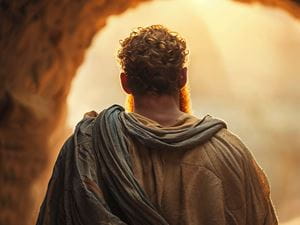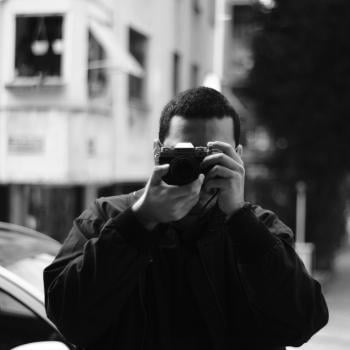
Prophet, Priest, and King (Lamentations 4:13-21)
Quite often, a nation suffers for the sins of her leaders as we see throughout society today. So also, in Jeremiah’s day, the prophet lamented how God’s people had reaped sin’s consequences (Lamentations 4:1-12).
The Condemnation of Unclean Shepherds
Jeremiah focuses condemnation on the unclean shepherds who were the first to fall: “This was for the sins of her prophets and the iniquities of her priests, who shed in the midst of her the blood of the righteous” (v. 13). The prophets and priests had killed the innocent people they were called to shepherd.
Those tasked with spiritual guidance abused their power (2:14; Jeremiah 5:31). As punishment, “they wandered, blind, through the streets; they were so defiled with blood that no one was able to touch their garments. ‘Away! Unclean!’ people cried at them. ‘Away! Away! Do not touch!’ So they became fugitives and wanderers; people said among the nations, ‘They shall stay with us no longer’” (Lamentations 4:14–15; e.g., Jeremiah 26:1–23). These religious leaders were cast off like lepers and stumbled blind in their spiritual distress (Leviticus 13:45–46; Deuteronomy 28:28–29). Blood stained their hands and garments, yet they were unable to cleanse themselves.
The prophets once spoke on behalf of God and the priests spoke on behalf of the people. Yet in Jeremiah’s day, the prophets no longer heard from God and the priests abused their office. They were expelled from the city and from their prominent positions, for the God they once served now serves as Judge: “The LORD himself has scattered them; he will regard them no more; no honor was shown to the priests, no favor to the elders” (Lamentations 4:16). God no longer looks with favor on his children as he drives them into exile (Deuteronomy 28:65–66). Thus, Judah’s fallen leaders cannot help her people.
Jeremiah laments as he desperately scans the horizon: “Our eyes failed, ever watching vainly for help; in our watching we watched for a nation which could not save” (Lamentations 4:17).
All such political maneuvering proved vain apart from God. And now, the enemy stands guard outside the gates. The people could not even step outside their homes: “They dogged our steps so that we could not walk in our streets; our end drew near; our days were numbered, for our end had come” (v. 18; see Jeremiah 16:16).
They freeze with fear like rabbits in the open desert, too far from their burrows to make a dash. While overhead, the vultures circle and swoop: “Our pursuers were swifter than the eagles in the heavens; they chased us on the mountains; they lay in wait for us in the wilderness” (Lamentations 4:19; 1:3, 6; see Deuteronomy 28:49; Jeremiah 4:13).
Even Judah’s king was captured: “The breath of our nostrils, the LORD's anointed, was captured in their pits, of whom we said, ‘Under his shadow we shall live among the nations’” (Lamentations 4:20). The king had fled into the desert:
Then a breach was made in the city, and all the men of war fled and went out from the city by night by the way of a gate between the two walls, by the king's garden, and the Chaldeans were around the city. And they went in the direction of the Arabah. But the army of the Chaldeans pursued the king and overtook Zedekiah in the plains of Jericho, and all his army was scattered from him. Then they captured the king and brought him up to the king of Babylon at Riblah in the land of Hamath, and he passed sentence on him. The king of Babylon slaughtered the sons of Zedekiah before his eyes, and also slaughtered all the officials of Judah at Riblah. He put out the eyes of Zedekiah, and bound him in chains, and the king of Babylon took him to Babylon, and put him in prison till the day of his death (Jeremiah 52:7–11).
Judah’s king represented God’s people under sovereign rule. He was the promise of a better life, the protector of the land, the keeper of the temple, and comfort for his people. Yet the last sight he ever saw was the slaughter of his sons and nobles. So, when King Zedekiah was captured, all hope seemed lost. If not even the king escaped, what hope remained for common citizens? And how could God’s covenant with David still come to pass? How could a king sit forever on David’s throne if the last of the royal remnant sat rotting in a prison?
All of God’s leaders have fallen through corruption: prophet, priest, and king. Thus, the prophet longs for the coming Messiah who would be the true Prophet, the holy Priest, and the servant King we need. Unlike the false prophets with lying lips, Jesus would always speak the truth about God’s will and the way of our salvation (John 14:6). Unlike the wicked priests with blood upon their hands, Jesus would shed his own blood as the perfect atonement for sin and still makes intercession even now as our High Priest (Hebrews 4:14–16). Unlike the prideful kings who only tried to save themselves, Jesus would bravely lay down his life for all who call him Friend (John 15:13).
So, we will never find our savior among the nations, for Egypt will not rescue us from Babylon. Great wealth will not protect us on the day of judgment. Good works will not spare us from the day of God’s wrath. A life without pain or physical illness will not prepare us for eternity. A comfortable marriage and accomplished kids will not bring everlasting happiness. No pastor or politician, no earthly prophet, priest, or king can lead us to the promised land. For God takes away every idol until we find our satisfaction in Christ alone. When we are devastated by fallen leaders, it shows we have trusted too much in man. Instead, we need a Shepherd who is always good to lead us through our suffering.
The Conclusion of Unwanted Suffering
Judah’s enemies should not be quick to laugh, for they too would face destruction, while Jerusalem’s suffering was almost at an end (Lamentations 4:21). As the prophet affirms, “The punishment of your iniquity, O daughter of Zion, is accomplished; he will keep you in exile no longer; but your iniquity, O daughter of Edom, he will punish; he will uncover your sins” (v. 22). The cost of uncovered sin would transfer from the sons of Jacob to those of Esau (1:7–8, 21; 3:61–63).[1]
For soon, Edom would be exiled and a scourge among the nations. She would drink the cup of wrath and receive God’s judgment (Jeremiah 25:15–29; 49:7–22). Edom is the only foreign nation addressed by name in Lamentations. She had been Judah’s age-old enemy—a sibling rivalry stretching back to the time of the patriarchs (e.g., Genesis 36:28; 1 Chronicles 1:42–43; Amos 9:12; Jeremiah 49:7–22; Joel 3:19). Edom even aided Babylon in the final days of battle and cheered Jerusalem’s ruin (Psalm 137:7). So, Nebuchadnezzar awarded Edom the lands of Judah as reward. Yet God now promises, “Soon, fortunes will be reversed. I will bring back Judah from the exile and I will punish Edom.”
Believers today are greatly concerned by the state of our society: rampant sin, corrupted leaders, the wicked in control. Yet God reminds us that he will one day right all wrongs and ultimately establish justice. He will restore his people and overthrow the wicked in his good time. Our God is faithful to give new morning mercies because his steadfast love endures forever. For God sent his Son into a fallen world to pay the price for sin (John 3:16).
Christ kept the promises broken by those unclean shepherds and assured us that our suffering would one day end. He then rose in glory to prove his word was true. Our lament declares this fallen world is not as it should be, but in Christ Jesus we can hope for so much more.
[1] The term for “exile” is related to the word translated “uncover, expose.”
9/17/2024 8:45:06 PM





